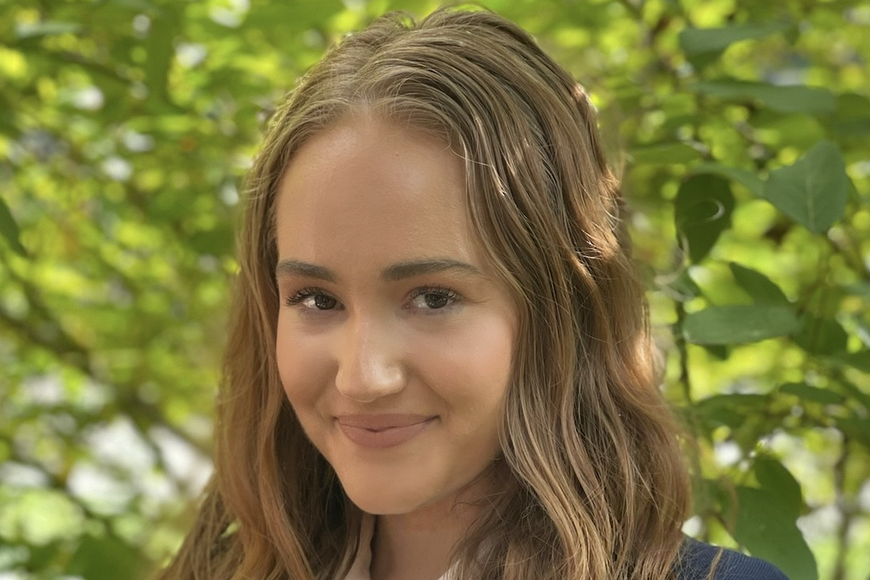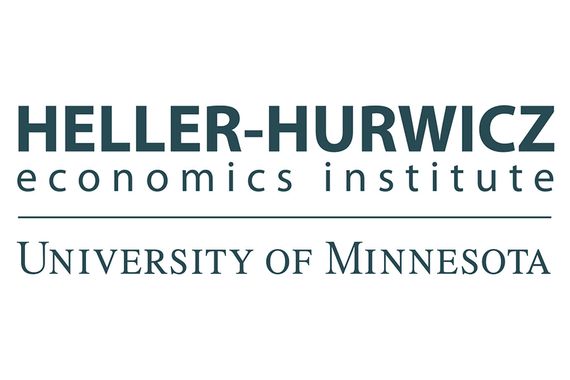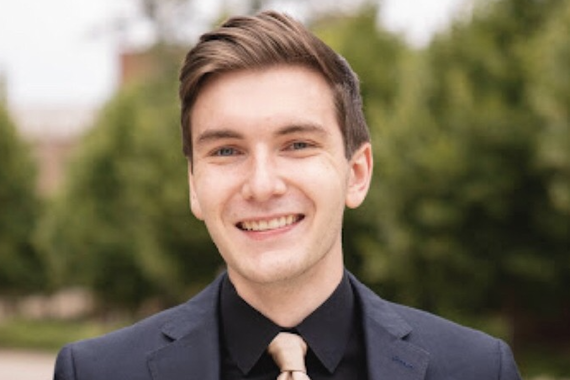Interview with Economics Alum Nadia Huffman
In this interview, Nadia Huffman (BS '19) looks back at her time in undergrad at the University of Minnesota and shares her educational and professional journey. Many economics students choose to either explore higher education within economics or work in the corporate world upon graduation, but Nadia has been able to explore both paths and shares her experience and advice with pursuing both career paths.
Can you tell me a bit about your college and career path?
I graduated from the University of Minnesota in 2019 with a bachelor of science in economics and minors in both management and statistics. Since I was young, I have been interested in economics. I found the way that economic theory, along with data, can be used to examine some topics such as inequality and development to be quite powerful.
Early into my economics degree, I realized the importance of being able to work with data and decided to add a statistics minor to help me continue to develop data analysis skills that are particularly important in economics and research. In the last couple of years of college, I also became interested in learning more about business and management. I decided to also pursue a management minor to complement the economic theory I had learned and provide some additional real-world applications and tools.
Outside of school, I was involved in economics organizations including Economentors, an economics mentorship program I helped set up, where I was in charge of creating programming, recruiting mentors and mentees, and career and academic development events. Another highlight was working with Professor Thomas Holmes on my senior thesis, which explored the bidding process for Amazon’s second headquarters location. I created a bidding game that illustrated the optimal bid amount for each of the cities given the city characteristics that wanted to be selected to serve as headquarters for the company. My thesis research process was a wonderful experience and being able to work with an esteemed faculty member was very insightful.
I also worked on a paper in the Economic Development course where I looked into Convergence Theory and was able to continue the research after the course concluded and I presented it at an economics conference in Vancouver and eventually had that paper published in 2020. I had a very busy, but exciting time in undergrad and was able to learn a lot!
How did you become interested in the corporate world and what was your experience at U.S. Bank like?
During the summer between my junior and senior year of college, as I was interested in exploring business and management, I did an internship at U.S. Bank headquarters located in Minneapolis and worked in the strategy division on money movement and digital payments.
As my senior year approached, I was debating between choosing to start my professional career or pursue higher education in graduate school, but I chose to return to U.S. Bank after graduation in the same division because I wanted to build my professional skills and learn more about the industry.
While I was at U.S. Bank, I worked as a project manager and data analyst, where I built data dashboards, tracked trends, provided metrics and insight on digital banking products, and managed the progress of various projects. I worked at U.S. Bank up until April 2022, and I was able to learn a lot of hard and soft skills through working in corporate America and felt like the maturity and experience I received prepared me for my next goal to pursue research and higher education! I remain incredibly grateful for this time, everything I learned, and the growth it brought!
What has your journey to pursue research looked like?
After learning a lot from my time at U.S. Bank, and being three years out of undergrad, I felt ready to go back to school soon and decided to apply for the Fulbright Scholarship. My mom is from Bulgaria and like many Bulgarians, I had family involved in small business.
During my time working in digital at U.S. Bank, I had seen how digitalization has been transforming the world and noticed how Bulgaria was far behind the rest of Europe in terms of digital advancements. My proposal focused on assessing the attitudes of Bulgarian small businesses toward digitalization and quantifying the economic opportunity of digitalization to provide a recommendation on how the Bulgarian government may assist. I felt like this research combined my background in economics, my interests in inequality and development, and my experience working with digital solutions at U.S. Bank. I found a great faculty member in Sofia, Bulgaria to sponsor my research. However, I was also presented with an opportunity to work on research with two professors researching health inequality at the Harvard Kennedy School of Government.
I felt incredibly blessed to be presented with two amazing opportunities and ultimately chose to pursue the research opportunity at Harvard. However, I still hope to one day pursue my research in Bulgaria! Currently, at Harvard, with the guidance of two professors, I manage a randomized controlled trial that examines the effects of health care accreditation on health care in jails. In this position, I am lucky to receive close mentorship from two professors who have done phenomenal work in the field. I feel like I learn something new from them every day and that has been so rewarding! This position has taught me so much about running experiments, collecting and working with data, and how to manage a large-scale process with many moving components. I have also been able to learn more about how research can be used to influence policy which I find to be incredibly powerful. This has opened a new area of interest to me (policy) which I had not been as familiar with before.
What are your future career aspirations?
Before I started college, I saw myself completing undergrad and going straight to graduate school, but my career path hasn’t been as linear as I expected it to be considering my positions at U.S. Bank and at Harvard. But I’m so thankful and grateful for this and all of these opportunities I was presented with! These experiences have shaped me into who I am and provided me with the skillset that I have today. I still aim to continue with higher education but am grateful for the time I took before returning to school to grow and build on the skills that I gained during my time as an undergraduate student.
What advice do you have for other students interested in economics?
I would strongly encourage students to take Econometrics and supplement their economics training with several statistics courses. I find that the tools I learned from Econometrics and statistics have been incredibly useful in all my roles—working with and understanding how to interpret data is incredibly important!
I have also found that learning how to think and approach problems as an economist has really helped me prepare for these roles. Ultimately, economics is about investigating and solving problems, so any of the economics courses you take will prepare you for the real world where you will be presented with new problems to think about or challenges that you will have to solve. Also, take advantage of research opportunities and opportunities to connect with faculty! I look back so fondly on my time working on the economic development research and working with Dr. Holmes on my honors thesis.
This leads me to my next piece of advice—find a mentor or an advocate with experience to help and guide you to achieve your goals. I am now four years post-graduation and Dr. Holmes remains a mentor of mine whom I remain in contact with. I also remain in contact with my mentor from my time at U.S. Bank and am lucky to have two female economists whom I look up to here at Harvard. I have consistently found that having a mentor has been such an incredible asset.
As for more general advice—there are so many avenues to take within economics, so find what truly interests you and what you are passionate about, whether that is research or work. Say yes to opportunities that come your way, because you will learn so much from each opportunity you are presented with. Every opportunity will either grow your existing skills or help you build new ones that will contribute to the toolkit that you will bring with you in your future endeavors.



